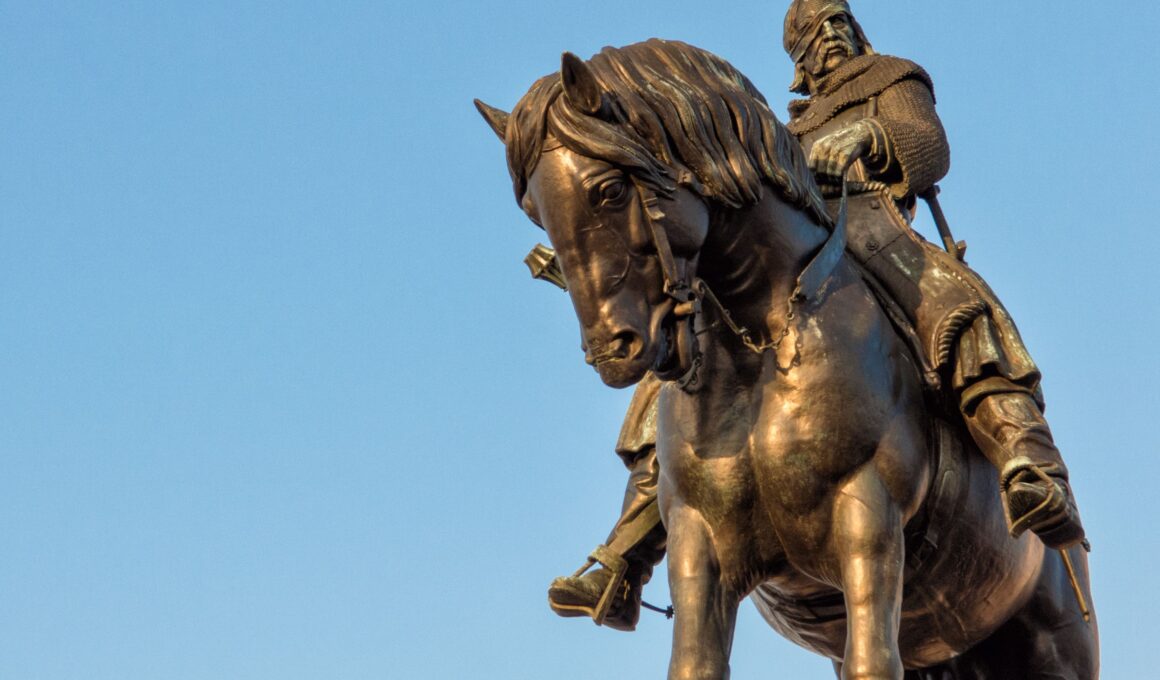Table of contents Show
The Story of Jan Žižka and Catherine is a wonderful tale of love, perseverance, and loyalty set amid the stormy fifteenth-century period known as the Hussite Wars. Recognized military leader Jan Žižka and Catherine of Valois, a French noblewoman, wed despite social and political pressures.
Together, they fough for religious freedom in the Czech Republic and change inside the Catholic Church, and their romance developed along the way. Catherine remained steadfast in her defense of their shared values despite several setbacks and Jan Žižka’s untimely death.
Theirs was an enduring chapter in Czech history that stands as a testament to the power of love over overwhelming odds.
The Extraordinary Lives of Jan Žižka and Catherine: A Journey Through History
Jan Žižka, recognized for his military strength and strategic acumen, is a prominent player in the Hussite Wars. In spite of his scarred and one-eyed look, he was a respected and beloved leader who won many battles including the battle of Nové Město which happened near the New Town Hall in Prague . As a royal widow, Catherine of Valois bucked convention by marrying the Hussite leader Žižka. The Czech people admired her much because of how committed she was to supporting her husband’s cause.
A story of love, resiliency, and undying devotion to a cause they both believed in emerges as we follow them through their lives. Their marriage was a radical departure from social norms. Catherine, even after Žižka’s untimely death, became a symbol of courage and determination for the Hussite cause.
In conclusion, the unusual nature of Jan Žižka and Catherine’s existence stems from their unique love story, unyielding dedication to the Hussite cause, fortitude in the face of adversity, and enduring legacy.
The True Story of Jan Žižka and Catherine
Jan Žižka and Catherine’s true story about love went against the grain of contemporary mores and political strife. Catherine, a French aristocrat, wed Jan Žižka, a prominent military figure during the Hussite Wars. Their marriage was a testament to the resilience of love in the face of tragedy.
Both Jan Žižka and Catherine were profoundly committed to the Hussite cause, which advocated for religious reform and independence for the Czech people. Their unwavering commitment to the cause, although facing daunting odds, was inspiring.
In a time of religious and political strife, their incredible love story of devotion and shared goals shined as a beacon of hope. They overcame obstacles to maintain a great marriage and leave an indelible mark on history.
The Impact of Jan Žižka and Catherine’s Bond
The significance of the friendship formed between Jan Žižka and Catherine throughout the ecclesiastical and social upheaval of the 15th century can be demonstrated in a number of ways:
Love in the Face of Adversity
The love story of Jan Žižka and Catherine is an inspiring example of perseverance in the face of opposition. Their marriage proved that love could triumph over anything, including royal pedigree and religious differences.
Shared Commitment
They both cared deeply for the Hussite cause, which sought religious reform and freedom for the Czech people, and this was a cause to which they gave their wholehearted support. Catherine’s unflinching loyalty to her husband’s goal won the hearts of the Czech people and fortified their resolve in the face of adversity.
A Symbol of Resilience
According to Jan Žižka’s history, he is a symbol of fortitude because of how important his military skill and strategic acumen were throughout the Hussite Wars. Catherine’s unwavering support and enthusiastic participation in the movement demonstrated her tenacity and resolve to see their common goals through.In Prague, there is a national monument in Prague dedicated to General Jan Žižka that is located near Vítkov.
Legacy
Jan Žižka and Catherine’s storyline is not only kept in the books of history but additionally in the hearts of those who appreciate their eternal love and commitment. Their story is a testament to the power that love can have in the face of adversity.
Women Empowerment
Catherine’s participation in her husband’s military campaigns and her advocacy for the Hussite cause after Žižka’s death are examples of women’s empowerment since they defy conventional gender roles. Her fortitude and impact demonstrate the power and potential of women throughout history.
FAQ
The marriage likely faced scrutiny and opposition due to the tumultuous political and social climate, with tensions between different religious and political factions. Žižka, a prominent military leader, and Catherine would have needed to navigate these pressures carefully, balancing personal loyalty with political alliances.
Catherine’s background might have shaped her perspectives and actions during the Hussite Wars. Depending on her social standing and education, she could have played a supportive or advisory role, influencing decisions or providing moral support during critical times.
The article doesn’t mention descendants, but if they existed, they might have played roles in Czech history or maintained the legacy of Žižka’s military and political achievements, potentially influencing subsequent generations.
Their story might be commemorated through literature, monuments, or educational programs, reflecting on their contributions and significance in Czech history, particularly emphasizing Žižka’s military leadership and possibly Catherine’s support.
Žižka’s tactical genius was evident in key battles where his innovative strategies and leadership helped secure victories for the Hussite forces, significantly influencing the war’s trajectory and establishing his legacy as a formidable military leader.





